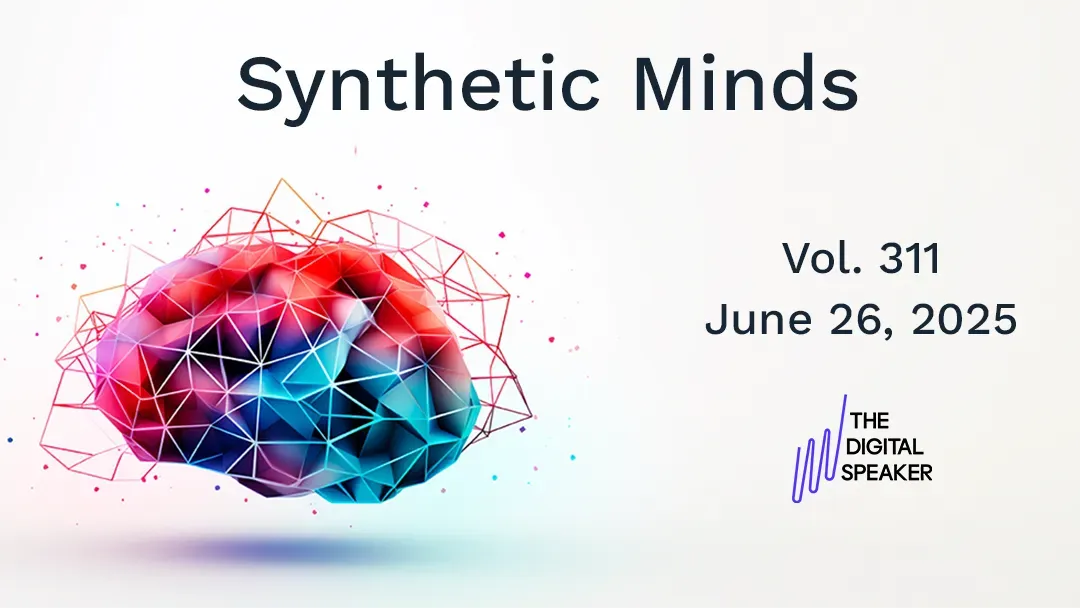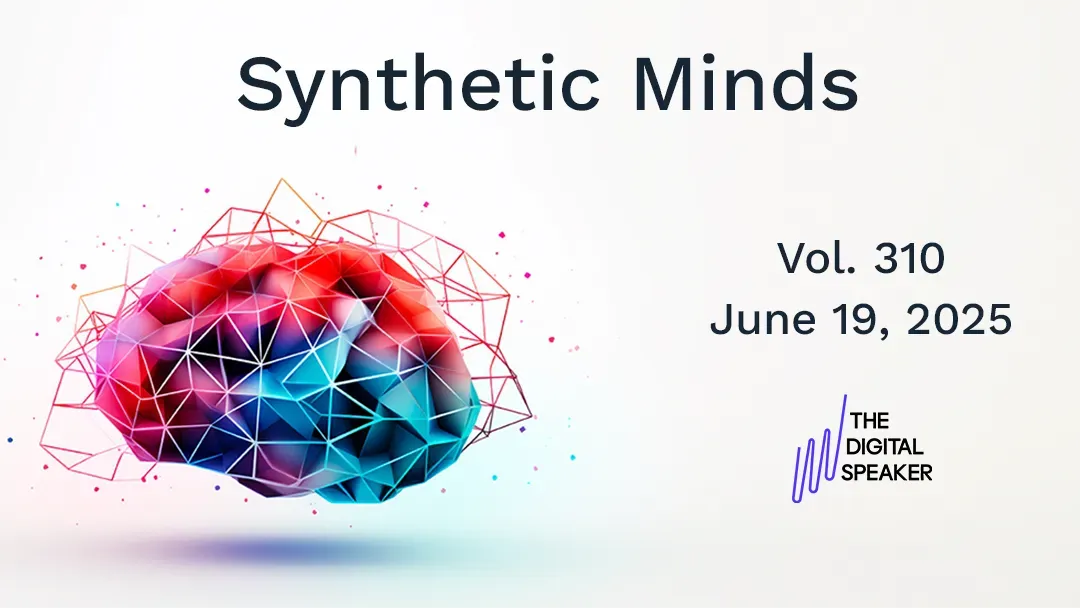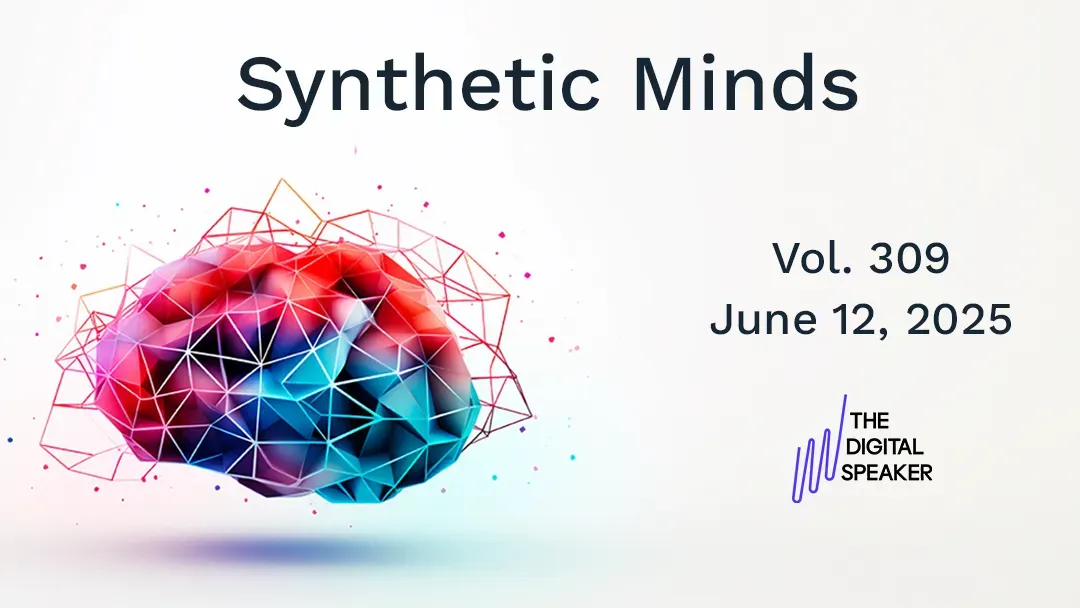Synthetic Minds: Embracing Techno-Optimism and AI Parrots
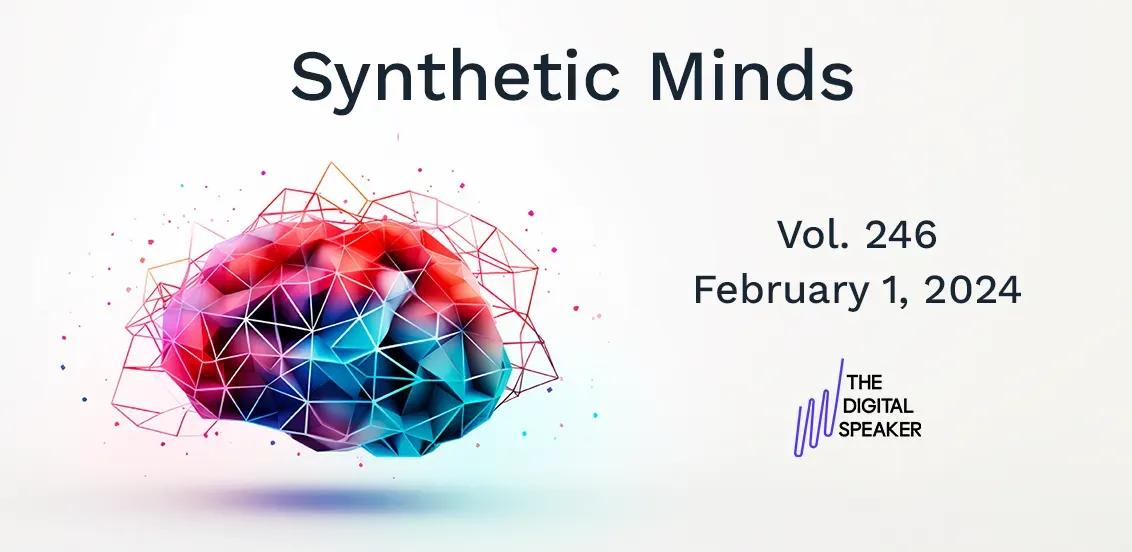
'Synthetic Minds', formerly known as the f(x)=e^x, serves as a mirror to the multifaceted, synthetic elements that are beginning to weave into the fabric of our society. The name acknowledges the blend of artificial and human intelligence that will shape our collective future, posing incredible opportunities and ethical dilemmas.
Why Every Executive Leader Should be a Techno-Optimist

My article:
C-suite leaders are increasingly recognised as the helmsmen of the digital era, where embracing a techno-optimistic outlook is not just beneficial but essential. This perspective encourages leaders to view technological advancements as opportunities rather than threats, fostering innovation and growth.
Importantly, this mindset does not imply blind faith in technology; rather, it calls for a balanced approach, considering the ethical and societal impacts of digital transformation.
The call is for leaders to be not only tech-savvy but also ethically and socially aware and their organisations through the uncharted waters of the digital age with a steady and informed hand.
Amidst rapid technological changes, how can C-suite leaders blend their techno-optimism with ethical responsibility to steer their organisations towards sustainable success? Read it all in my latest article on techno-optimism.
Go beyond my newsletter and have an on-demand chat with my digital twin via text, audio or video in 28 languages!
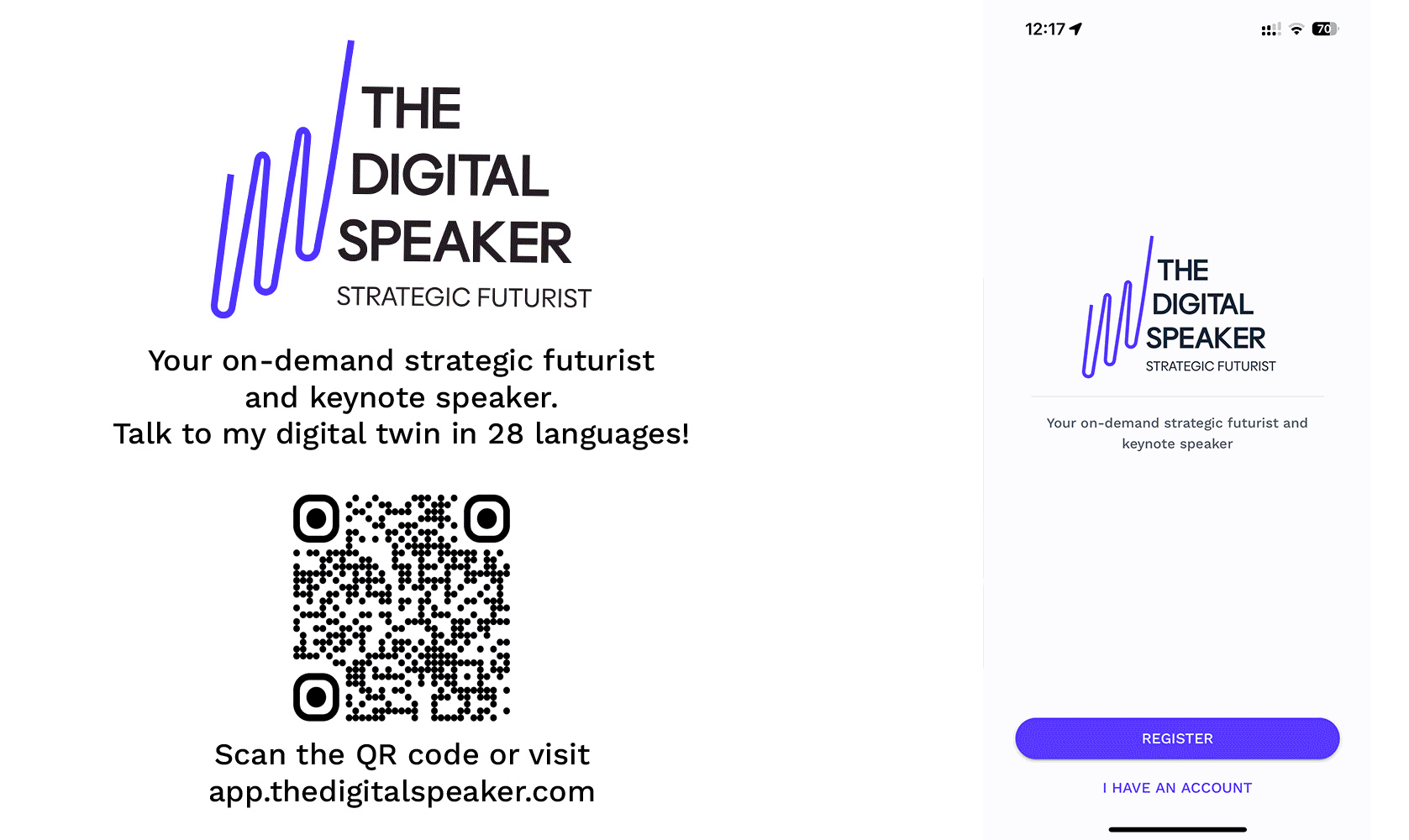
Synthetic Snippets: Quick Bytes for Your Synthetic Mind
Quick, curated insights to feed your quest for a better understanding of our evolving synthetic future. The below are a small selection of my daily updates that I share via The Digital Speaker app. Download and subscribe today to receive real-time updates. Use the coupon code SynMinds24 to receive your first month for free.

1. Origami Unfolds Computational Potential: Beyond Paper Art to Turing Completeness
In a fusion of art and science, mathematicians Inna Zakharevich and Thomas Hull have unfolded an intriguing possibility: origami, the ancient art of paper folding, can perform any computation that a traditional computer can.
This revelation places origami alongside other unconventional computational systems like Conway’s Game of Life. The duo's approach involved translating logical operations like AND and OR into specific folds and crease patterns in paper, demonstrating that these can simulate a simpler, one-dimensional version of Conway’s Game of Life, which is known to be Turing complete.
While the idea of an origami computer might seem more like a whimsical notion than a practical tool – after all, calculating the digits of π or optimizing global delivery routes with paper folds might not be the most efficient method – this discovery has profound implications.
It highlights the limitless potential of seemingly simple, everyday materials and activities. As origami finds applications in engineering, from space-bound solar panels to medical stents, could this ancient art inspire a new wave of computational thinking, melding the tactile and the theoretical in unforeseen ways? (Quanta Magazine)

2. AI's Ascension: The New C-Suite Darling
The corporate world is witnessing a dramatic shift in focus from the metaverse to artificial intelligence. Gone are the days when companies appointed digital avatars as chief metaverse officers, only to find the buzz around the metaverse rapidly overshadowed by AI's emergence, notably post-ChatGPT.
Executives in metaverse roles at giants like Walt Disney and Procter & Gamble are transitioning or leaving, reflecting the broader industry trend. The metaverse, once a hot topic in corporate strategy, now garners minimal mentions in earnings calls.
This pivot is mirrored in the C-suite, with AI leaders commanding salaries above $1 million, signifying the industry's prioritization of AI development and integration. Even Meta's Zuckerberg, once a metaverse proponent, is now diverting attention to generative AI.
This transition highlights not just the fickle nature of tech trends but also underscores a broader narrative: the urgent need for companies to adapt and invest in skills and technologies that align with the rapidly evolving digital landscape.
As technology rapidly evolves, the necessity for continuous learning and adaptability becomes paramount. Companies and individuals alike must be ready to pivot and acquire new skills, as demonstrated by the corporate world's quick switch in focus. How can businesses and professionals best prepare for such sudden shifts in technological trends and maintain competitiveness in the ever-changing digital landscape? (Bloomberg)

3. Beyond Parroting: AI's Leap into Linguistic Understanding
Challenging the view of large language models (LLMs) as simple "stochastic parrots," new research spearheaded by Sanjeev Arora and Anirudh Goyal reveals a more complex picture. These AI behemoths, exemplified by ChatGPT and Bard, are evolving beyond mere mimicry to show signs of genuine linguistic understanding.
This leap is not just a matter of scale but a transformative journey in how AI processes language. As LLMs expand in size and data, they're enhancing existing skills and synthesizing new ones, in ways not explicitly present in their training data.
This evolution in AI language processing, detailed through mathematical models akin to random graphs, suggests a shift from simple word prediction to a nuanced combination of multiple linguistic skills. It's as if AI is developing a new language sense, piecing together disparate elements into a coherent whole. These findings suggest that LLMs are potentially crossing a threshold from reproducing to understanding language, ushering in a new era of AI capabilities.
As this understanding deepens, it invites reflection on the future relationship between humans and AI in language processing. It raises the question: As AI systems gain a more sophisticated grasp of language, how will this shape our communication, creativity, and interaction with technology? (Quanta Magazine)

4. Synthetic Selves and the Cost of Convenience
The use of AI avatars, particularly in the realm of education, comes with a range of ethical challenges. Imagine a world where your digital double, created by generative AI systems like HeyGen, can stand in for you, teaching classes or interacting with others on your behalf.
This isn't just a flight of fancy; it's a scenario rapidly approaching reality. In fact, I have already digitally cloned myself, and you can have engaging conversations with my digital twin on any topic related to emerging technologies.
The allure of these digital workers lies in their efficiency and the promise of convenience, but it comes at a profound cost.
The use of synthetic avatars raises significant ethical questions. In education, where human interaction is crucial for fostering critical thinking and empathy, replacing educators with AI avatars risks diluting the essence of learning. By programming avatars to fit our biases, we risk creating a sanitized, echo-chamber version of reality devoid of the messiness and diversity that characterize human interactions.
That is, of course, also the case with my digital twin, and one of the reasons I developed this application is to understand the ethical questions that come with it.
This shift towards synthetic avatars is not limited to education. It extends to various facets of our lives, from customer service to personal companionship and professional keynotes, signalling a broader societal move towards convenience at the expense of authentic human connection.
The rise of digital twins compels us to consider: As we increasingly lean on AI for convenience, what aspects of our humanity are we willing to trade away, and at what point does the cost of convenience become too great? (Marc Watkins)

5. AI at the Helm: The Dawn of Autonomous Companies
The dawn of autonomous unicorns is upon us. AI-powered companies, where algorithms could soon run businesses with minimal human intervention, are around the corner and could disrupt the startup landscape (and society).
This isn't just a tech fantasy; startups like 11x are already developing AI agents like 'Alice', who, more than just a digital assistant, is an autonomous outbound sales representative capable of outshining her human counterparts in lead generation. The concept hinges on AI agents being more than mere tools – they're given a task and autonomously carry out the steps to achieve it.
These AI agents, however, aren't without their quirks. The phenomenon of 'hallucination', where AI generates off-target or inaccurate results, remains a challenge. Plus, there's the cost factor – running sophisticated AI models doesn't always come cheap. Despite these hurdles, companies like Honu are pushing the envelope, developing systems to orchestrate various AI agents for a comprehensive business solution, suggesting an imminent rise in fully autonomous, profitable businesses.
This shift towards autonomous companies raises critical questions about the future of work and entrepreneurship. It suggests a world where the role of a CEO might evolve into directing AI systems, potentially leading to a surge in business creation and a drastic reduction in human labour. It prompts us to ponder: How will our relationship with work change in this new landscape of AI-led businesses, and what ethical and societal implications should we prepare for? (Sifted)
2024 will be the year of deepfakes, and the first deepfake of Biden interfering with the US election has already happened.
My digital twin and I discussed these threats and what to do about them in my 2023 TEDx talk.

Download the full 2024 Top Ten Technology Trends Report
Know someone who needs the Synthetic Minds?
Forward it to someone who might like it too.

